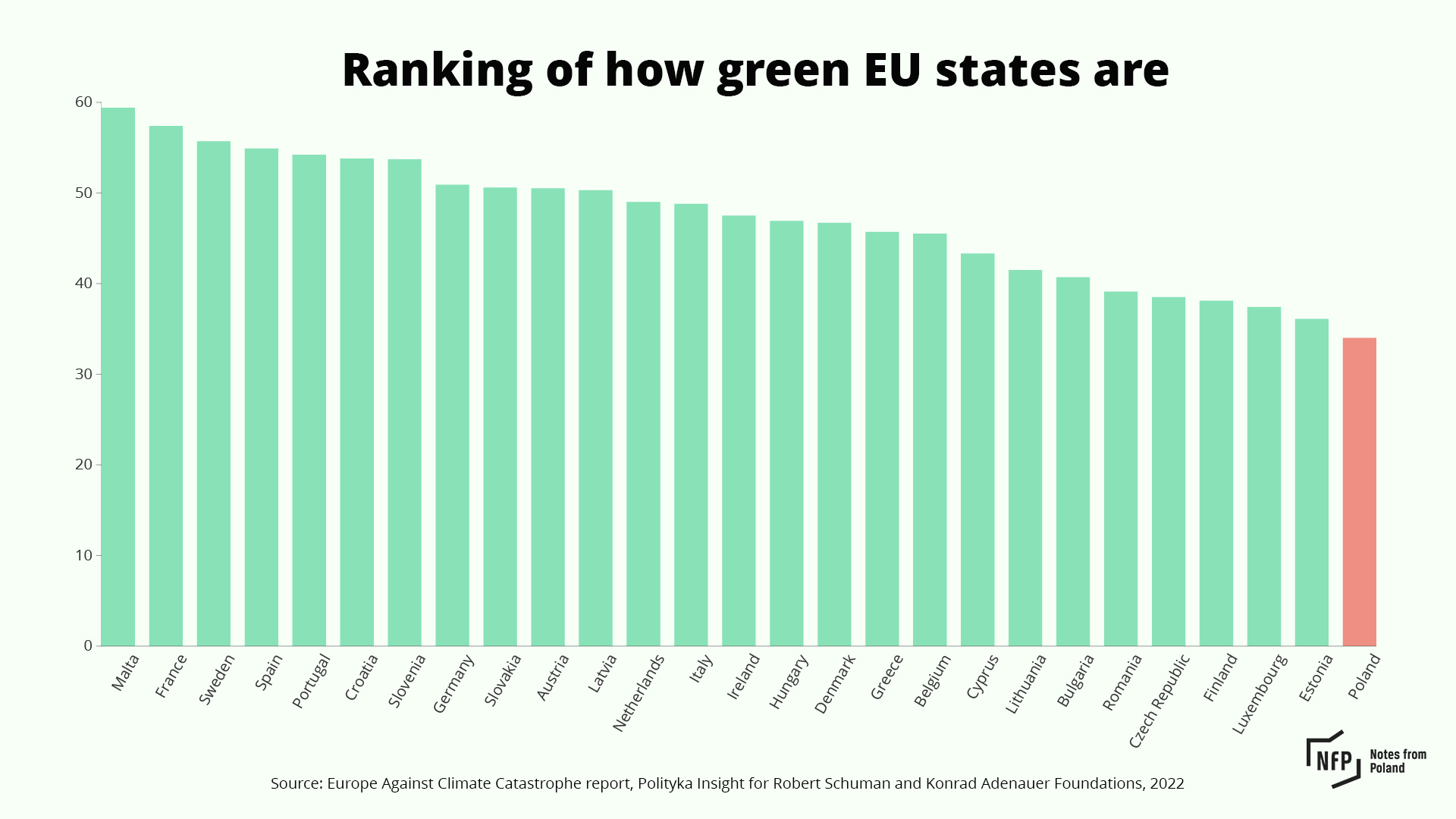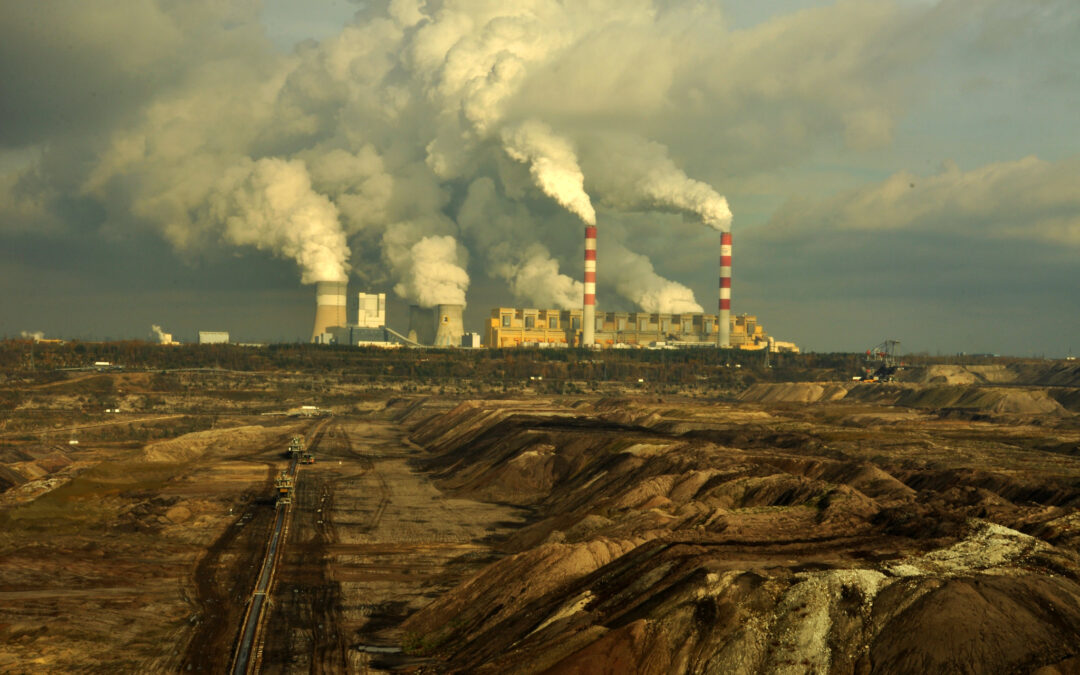Poland has been rated as the European Union’s least green country in a new ranking that takes into account the state of the environment, its effect on quality of life, and efforts by politicians, businesses and citizens to address climate issues.
Poland received a score of 34 out of 100 in the EU-funded study. The next three lowest countries were Estonia (36.1), Luxembourg (37.4) and Finland (38.1).
At the other end of the scale, Malta (59.4) topped the ranking, followed by France (57.4), Sweden (55.7) and Spain (54.9).

Poland’s poor result was in part down to the “particularly bad efforts by the state to support the climate”, note the authors or the report, which was produced by Polityka Insight, an analysis and intelligence provider, on behalf of the Robert Schuman and Konrad Adenauer Foundations.
They note that the country is one of ten in the EU that has not adopted a national strategy to combat climate change, that it contributes relatively little to global funding for that purpose, and that it has a low proportion of energy produced from renewables (16%). That resulted in Poland ranking last in the category for state support.
It also finished second bottom in business support for climate action. Poland has seen industrial production rise by 26% since 2015, putting it in the EU’s top three alongside Lithuania and Cyprus, but that has not been matched by firms’ spending on green investment, which is six times worse than the EU average.
Poland also performs poorly when it comes to the impact of the environment on quality of life. Almost 724 people per million inhabitants die annually due to air pollution, with only Bulgaria (1,284) and Romania (741) having higher mortality rates.
That means that in Poland, which has a population of around 38 million, an average of over 27,500 people die each year because of pollution. Numerous other studies have found the air in Poland – where 70% of electricity is generated from coal and a third of households burn it for heating – to be among the worst in Europe.
The new report also notes that Poland is losing natural vegetation at a rate faster than all EU countries other than Bulgaria, Greece and Cyprus. Only 26% of its recreational bathing areas have water rated as high quality, three times worse than the EU average.
Kraków yesterday morning had the world's most polluted air.
Warsaw also recently topped the ranking, as Poland chokes in this winter’s first major wave of the country’s annual smog problems https://t.co/IEMhZ1Ezyo
— Notes from Poland 🇵🇱 (@notesfrompoland) December 15, 2021
However, the authors note that Poland does score above average for the quality of its ecosystem, including having the lowest percentage of endangered plant and animal species in the EU as well as relatively low consumption of natural resources.
Last year, bison – a species once hunted to extinction in the wild but successfully reintroduced in Poland – were removed from the International Union for Conservation of Nature’s (IUCN) Red List of Threatened Species. Poland has also successfully reintroduced lynxes into the wild while wolf numbers have rebounded.
Environmental groups have expressed concern that the current energy crisis could result in even worse air pollution levels in Poland than usual this winter, after the government provided allowances for households to buy coal and temporarily suspended quality standards for coal used in home heating.
Main image credit: Bogusz Bilewski/Greenpeace Polska (under CC BY-ND 2.0)

Peter Kononczuk is senior editor at Notes from Poland. He was previously a journalist for Agence France-Presse (AFP) in London and Warsaw.




















